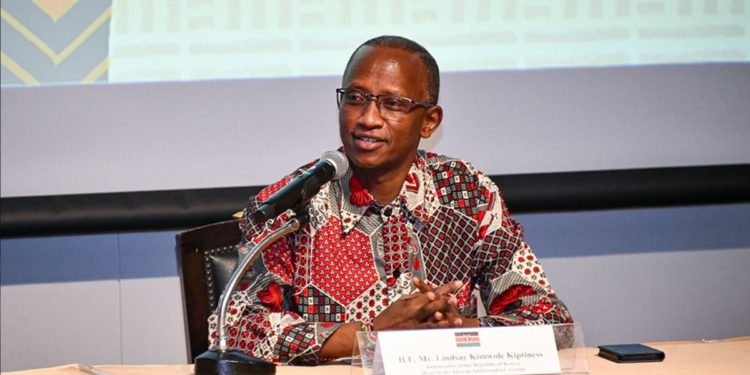The Kenya Embassy in Thailand has issued an urgent warning to Kenyans, urging them to stop traveling to Myanmar, where dozens have become trapped in scam compounds run by Chinese criminal cartels. Many Kenyans have fallen victim to fraudulent job offers, leading to slavery-like conditions inside highly guarded compounds. The embassy is making efforts to rescue those trapped, but it continues to face significant challenges.
In a stark statement, the embassy revealed that Kenyans are being trafficked into Myanmar under the pretense of lucrative job offers, only to be sold to cartel bosses for 45,000 RMB (approximately $12,000 USD). Once inside, they are subjected to grueling work conditions, with severe punishment, including electrocution and solitary confinement, for those who fail to meet the cartels’ demands.
“Despite our repeated warnings through the media, young Kenyans continue to fall prey to these criminal networks,” the embassy stated. Victims are often recruited through agents promising well-paying jobs in Thailand. However, after arriving in Bangkok, they are transported to Myanmar’s border town of Mae Sot, where they are smuggled across the border into the compound.
The embassy has been at the forefront of negotiating the release of Kenyan nationals from these fraud operations. Over the past two weeks, embassy officials have been stationed at the Thailand-Myanmar border, working tirelessly to secure the freedom of at least 10 Kenyans who have reached out for help.
One of the key difficulties in these rescue efforts stems from the cartel’s financial demands. “Cartel bosses have outrightly claimed they purchased the Kenyans as slaves and are demanding repayment if they are to be released,” the embassy disclosed, adding that the environment surrounding the compounds remains dangerous and difficult to access.
According to the embassy, the victims are forced into scam operations involving cryptocurrency and fake customer service roles, all designed to defraud unsuspecting individuals online. After a 10-day training period, they are assigned impossible targets, with failure leading to brutal consequences. Reports from rescued individuals indicate torture, including electrocution, whipping, confinement without food, and even threats of organ harvesting. Several victims have been confined to dark rooms for days, with many reporting severe psychological abuse.
While no Kenyans have died inside these compounds, the embassy reported that many have endured life-threatening injuries, including electrocution. The embassy continues to work with local authorities and international bodies to free those still held captive.
This warning is the latest in a series of pleas from the Kenyan government, urging citizens to avoid falling prey to fraudulent recruitment schemes. “It’s troubling to see young Kenyans, even after multiple warnings, continuing to pursue these job offers,” the embassy reiterated.
The Kenyan government has encouraged citizens to verify any overseas job offers through official channels and avoid paying hefty fees to dubious agents. In recent years, Southeast Asia has emerged as a hotspot for human trafficking and fraud operations, with thousands of victims from various countries lured under false pretenses.
The embassy said it remains committed to supporting the families of those trapped, though it acknowledges the complexity and danger of the situation. “We will continue to do everything in our power to secure the release of our citizens,” the embassy concluded, urging young Kenyans to heed the warnings and avoid putting their lives in jeopardy.
















